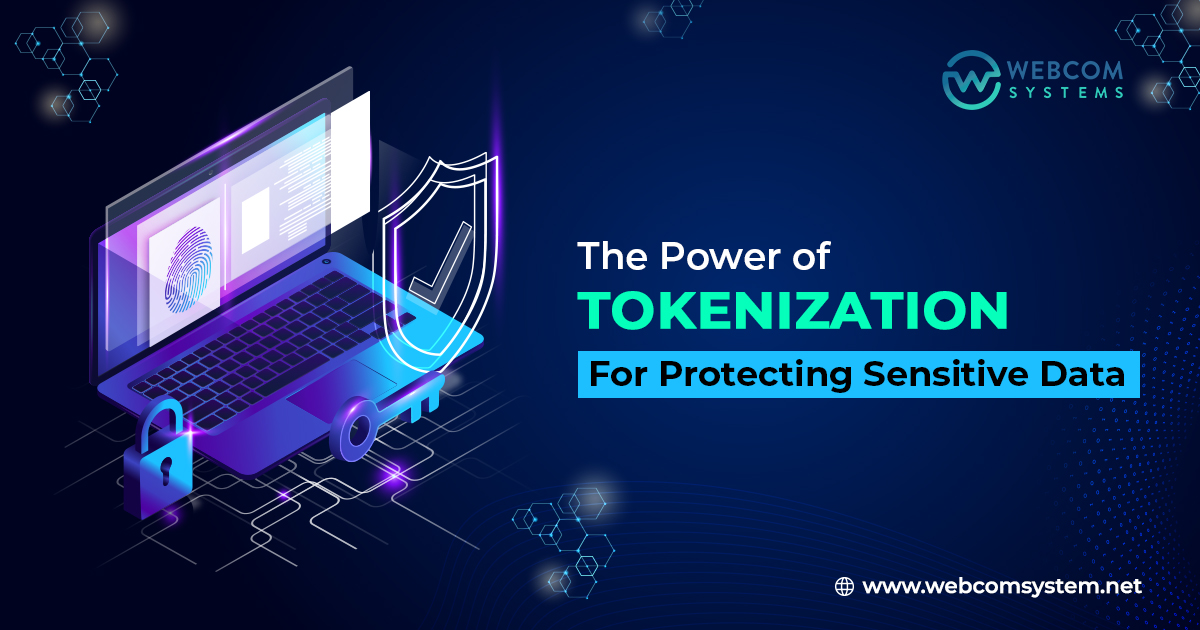Data security is a crucial concern for corporations because the consequences of unauthorized access or breaches can be catastrophic. This includes financial information like credit card numbers, as well as personal identification numbers which must be protected at all costs.
However, how do we protect sensitive information and still make it usable when needed?
One highly effective solution to safeguarding data is called Tokenization. Tokenization involves replacing sensitive information with nonsensitive placeholders or tokens. These tokens are created to have the same format and length as the original data so that they can function in nearly all situations where real values would be expected to work; however, unlike true values – which should never appear outside authorized systems – these items carry no actual sensitivity.
Power of Tokenization for Protecting Sensitive Data
In other words, anyone without an appropriate key or know-how cannot decipher their meaning even if one tries. A prominent cybersecurity firm disclosed that companies that adopted tokenization measures recorded significant reductions of 60% in security incidents linked to data breaches recently.
It further stated that among organizations using encryption alone, there were six times more cases of breaches than among those employing both methods including tokenization.
So what makes tokenization powerful for protection? Let’s Understand in detail.
Enhanced Data Security
One of the main advantages of tokenization is the increased security it brings about. Organizations are able to lower the chances of data breaches by using tokens instead of sensitive data since unauthorized users would only get hold of meaningless tokens and not actual information.
For instance, in the payment card industry, tokenization is widely used to protect cardholder data. Rather than storing actual credit card numbers, organizations create tokens that can be used for transactions. It means that even if the token data gets into the wrong hands, it cannot be used without knowing the original credit card information.
Moreover, tokenization obviates the need to store sensitive data in its raw form. Traditional ways of securing data require that this sensitive information is stored either on databases or physical media. These storage methods are at risk from theft, loss or unauthorized access. Tokenization however limits potential attacks by doing away with storing such sensitive information completely.
Compliance with Data Protection Regulations
In the last few years, data protection regulations have become more severe and complicated. Organizations that handle sensitive information are now required to follow laws like the General Data Protection Regulation (GDPR) and the Payment Card Industry Data Security Standard (PCI DSS). Failing to comply with these regulations can have very bad consequences, including large fines and reputational damage.
Tokenization assists organizations in achieving compliance by shrinking the amount of data they need to protect. Tokens do not have any intrinsic value so that they do not fall under the same regulatory requirements as the original sensitive data. This significantly simplifies the process of compliance and reduces legal and financial risks for organizations.
For example, in the healthcare industry, tokenization is used to safeguard patient health information (PHI) in line with the Health Insurance Portability and Accountability Act (HIPAA). By tokenizing sensitive patient data, healthcare institutions can stay compliant while still being able to use this data for medical research and analysis.
Minimized Impact on Operations
The choice of tokenization as a data protection strategy comes with several operational advantages. Because tokens functionally act as the original sensitive data, organizations can keep using their existing systems and processes without any major changes. Thus, tokenization can be easily integrated into the current IT infrastructure so as to minimize the disturbance to day-to-day activities.
For example, online retailers may tokenize customer payment information to enable secure transactions without having to store real cardholder data. This results not only in decreasing the risks of data breaches but also reducing the load of compliance with PCI DSS requirements for safe data storage.
Moreover, tokenization promotes secure data sharing between different parties. Instead of giving out the actual sensitive data, organizations can give out tokens to trusted partners or third-party service providers. This paves way for an uninterrupted collaboration while still maintaining the security of the information.
Retention of Data Utility
One of the common issues with data protection techniques is the perceived diminution in data utility for analytics and other business processes. Nevertheless, tokenization perfectly meets the requirement of both privacy and data utility. Most of the purposes including analytics and forecasting can use tokens instead of sensitive data without breaching privacy or security.
In the financial services industry, for example, tokenization may be used to protect customer account numbers and yet allow for analysis on data and fraud detection. Tokens are employed in place of actual account numbers to perform trend analysis and identify patterns of fraudulent activity.
Another way in which tokenization helps is through secure identification and verification of individuals without disclosing their real information. This comes in handy especially when identity verification is required, such as online transactions or customer interactions. Through the use of tokens, organizations can provide secure services while still safeguarding their customers’ privacy.
Scalability and Flexibility
Scalability and flexibility are the major benefits of tokenization, making it a solution that can be used by organizations of all sizes and industries. Whether it is a small e-commerce startup or a multinational financial institution, tokenization can be applied to protect sensitive data effectively.
Additionally, the tokenization technique may be tailored to meet specific organizational needs. Tokens may be produced using various algorithms or encryption methods to match the level of security with the sensitivity of the data being protected. This adaptability lets businesses adjust their approach to tokenization to fit their unique needs.
For instance, organizations with higher security requirements may decide to implement format-preserving tokenization which guarantees that generated tokens will have the same format as original sensitive data. This enables smooth integration with existing systems while maintaining a high level of security.
Conclusion
From analyzing the power of tokenization, it is obvious that this technique plays a very important role in data security. It is an innovative method that gives power to both businesses and individuals to adapt to the modern era with increased assurance. As this technology progresses and merges with other advancements such as artificial intelligence and cloud computing, we can anticipate even stronger data protection solutions that safeguard our privacy and allow smooth and secure interactions in the virtual world. At Webcom System, we offer excellent tokenization solutions which put the safety and privacy of your data first.
Do not wait until things go in the wrong direction, get in touch today and see how we can help you secure and protect your sensitive data. Trust us, your business will thank you.
Also Read: What Is Custom Software Development?




